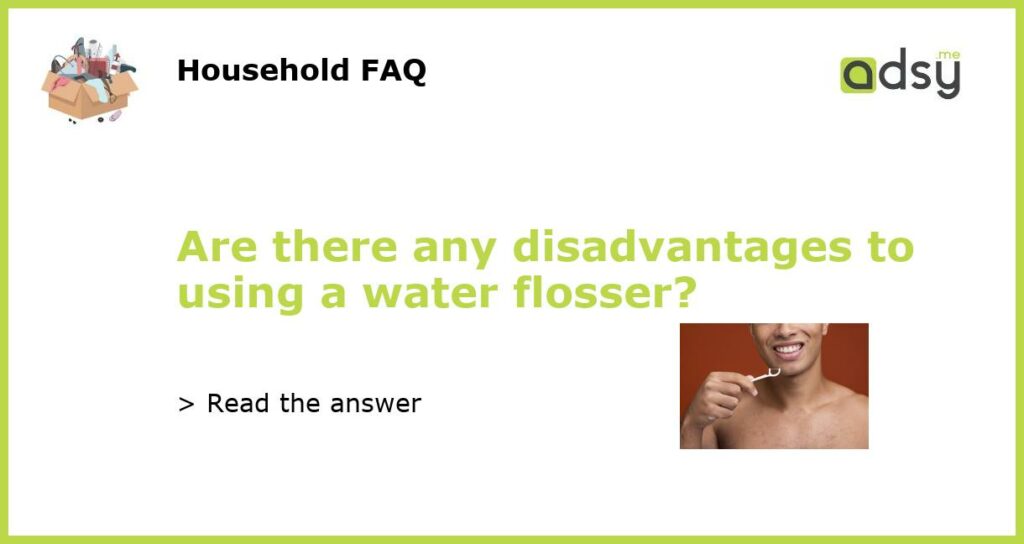What is a water flosser?
A water flosser is an oral care device that uses a pressurized stream of water to clean between your teeth and along your gum line. It’s a convenient and effective alternative to traditional dental floss or interdental brushes. Water flossers are especially useful for people with braces, implants, or bridges, but they’re also great for anyone who wants a deeper clean for their teeth and gums.
The benefits of using a water flosser
Water flossers have many advantages for oral health. They’re easy to use, versatile, and gentle on your gums. They can also help remove bacteria and food particles that floss and brushes can’t. Water flossers can reduce inflammation, improve your gum health, and prevent plaque build-up. Some models even come with different settings for customized cleaning and massage.
Potential drawbacks of water flossers
While water flossers are generally safe and beneficial, there are some disadvantages to keep in mind. For starters, they can be messy and require a power outlet or batteries. They’re also not as portable as traditional floss or interdental brushes, so you may not be able to use them on the go. Additionally, some water flossers may be too powerful and cause discomfort or bleeding if used incorrectly or on sensitive teeth and gums.
Cost and maintenance considerations
Another potential drawback of water flossers is their cost and maintenance. They’re generally more expensive than traditional floss or toothbrushes, and the replacement heads or tips can also add up. Some models may also require regular cleaning or descaling to prevent mold or bacteria growth. However, the investment in a water flosser can pay off in the long run by reducing the need for costly dental procedures or treatments.
The verdict on water flossers
In conclusion, water flossers are a valuable addition to any oral care routine. They offer many benefits for gum health and deep cleaning, especially for people with braces or dental work. However, they may have some drawbacks such as cost, maintenance, and portability, and be uncomfortable if not used correctly. If you’re considering adding a water flosser to your routine, it’s important to do your research and choose a model that suits your needs and budget.






